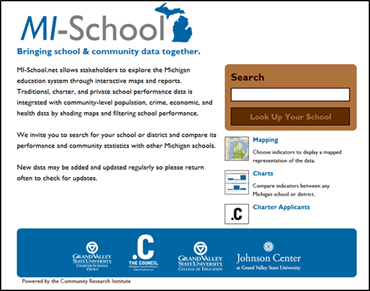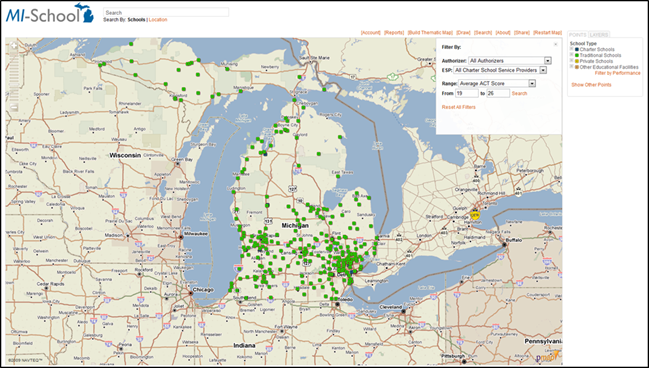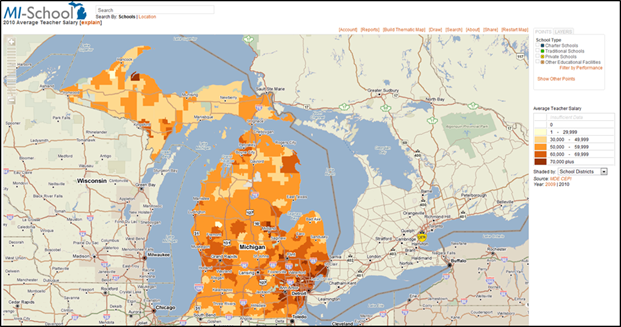Guest Post from Rob Kimball, Sr. Director of Operations & Policy, Grand Valley State University Charter Schools Office
Regardless of the size of an authorizer’s portfolio, a laser-like focus on school performance is critical to the practice of charter school authorizing. Grand Valley State University (GVSU)* authorizes 52 charter schools across Michigan serving nearly 25,000 students. With a commitment to driving student performance through authorizing, GVSU is committed to three key initiatives:
1. Recruit the highest quality school applicants.
2. Scale quality– develop the capacity of the portfolio.
3. Close low performing schools.
All three initiatives require a keen understanding of school performance. For portfolio development and the recruitment of high quality applicants it means that GVSU needs to understand the viability of proposed sites; for portfolio capacity development it means that GVSU needs to identify strengths and weaknesses of portfolio schools and link targeted support; and, finally, for school closure, it means that GVSU needs to understand quality school choices for displaced students. To these ends, GVSU, in collaboration with The Council of Michigan Charter School Authorizers, and the GVSU College of Education launched Mi-School.net, a public web-based mapping program that operates similarly to a “Google Maps” for Michigan education stakeholders. The site features a robust array of community and education data for all Michigan traditional schools, charter schools, and communities in an interactive mapping website.
If you’re wondering what school in the state has the strongest assessment scores within the neighborhood of greatest violent crimes, Mi-School.net can tell you in a few clicks. Health, crime, voting, economic, demographic, enrollment, and student performance data are all included in the site from the neighborhood level to the regional level. 47 different indicators related to education are included in the site, including average teacher salary and pupil to teacher ratio, for all 5,005 K-12 charter and traditional school buildings in the state. School data can be filtered by authorizer, education service provider, enrollment, assessment performance, and student socioeconomic status.
For Michigan authorizers, it’s brought information that previously required many clicks through multiple websites to authorizers and applicants in just a few quick clicks in a single site. The capacity to compare schools and filter school performance and enrollment across the state has brought a new level of rigor to the application review process where proposed sites are vetted for need and programmatic alignment. For charter school applicants, the information has been welcomed, particularly the school-age population and demographic data visualized in proximity to low performing traditional district schools.
The site is free and updated regularly through automatic data downloads directly from state, local, and national data sources. Going forward, the GVSU team anticipates incorporating mobile performance reports and secure reports that incorporate financial audit data for each of their school boards.
Grand Valley State University is the leading state-wide authorizer in Michigan. Using NACSA’s national standards for quality authorizing, GVSU is committed to furthering quality, choice, and accountability for Michigan’s K-12 students. For further information, contact Tim Wood, PhD.
*Editor’s Note: A recent report on authorizer quality commissioned by the Michigan Board of Education found that GVSU had the highest performing portfolio of charter schools in the state.





